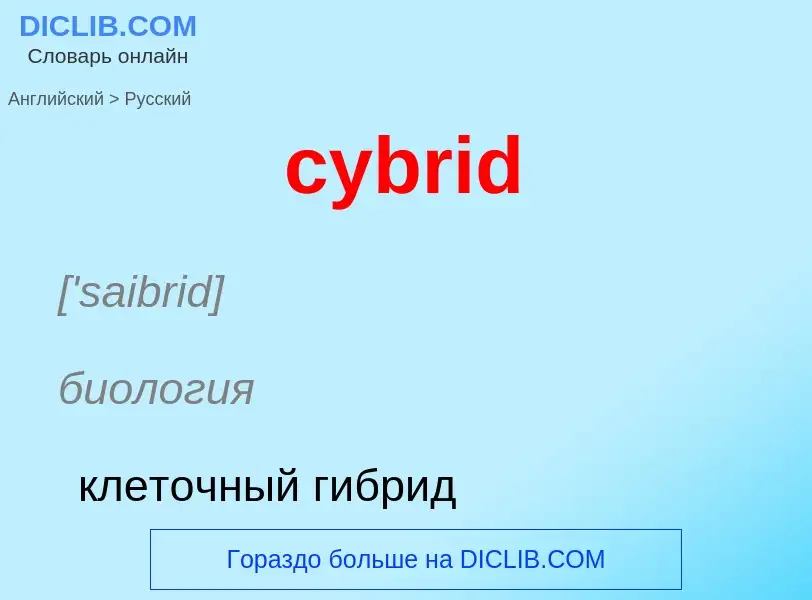Traducción y análisis de palabras por inteligencia artificial ChatGPT
En esta página puede obtener un análisis detallado de una palabra o frase, producido utilizando la mejor tecnología de inteligencia artificial hasta la fecha:
- cómo se usa la palabra
- frecuencia de uso
- se utiliza con más frecuencia en el habla oral o escrita
- opciones de traducción
- ejemplos de uso (varias frases con traducción)
- etimología
cybrid - traducción al ruso
['saibrid]
биология
клеточный гибрид
существительное
[cyto + hybrid]
биология
клеточный гибрид
Wikipedia
A cytoplasmic hybrid (or cybrid, a portmanteau of the two words) is a eukaryotic cell line produced by the fusion of a whole cell with a cytoplast. Cytoplasts are enucleated cells. This enucleation can be effected by simultaneous application of centrifugal force and treatment of the cell with an agent that disrupts the cytoskeleton. A special case of cybrid formation involves the use of rho-zero cells as the whole cell partner in the fusion. Rho-zero cells are cells which have been depleted of their own mitochondrial DNA by prolonged incubation with ethidium bromide, a chemical which inhibits mitochondrial DNA replication. The rho-zero cells do retain mitochondria and can grow in rich culture medium with certain supplements. They do retain their own nuclear genome. A cybrid is then a hybrid cell which mixes the nuclear genes from one cell with the mitochondrial genes from another cell. Using this powerful tool, it makes it possible to dissociate contribution from the mitochondrial genes vs that of the nuclear genes.
Cybrids are valuable in mitochondrial research and have been used to provide suggestive evidence of mitochondrial involvement in Alzheimer's disease, Parkinson's disease, and other conditions.

